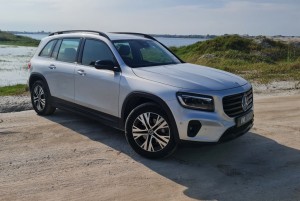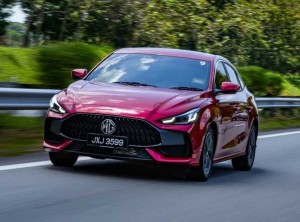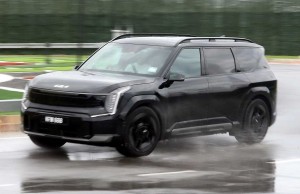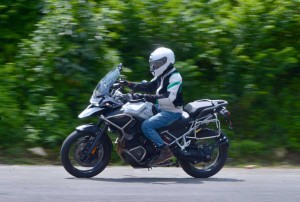Govt mulling mandatory ABS for motorcycles
By THE STAR | 24 May 2022
PETALING JAYA: A study is being done to determine if the Government should make it mandatory for all new motorcycles above 150cc to have anti-lock braking systems (ABS), says Datuk Seri Dr Wee Ka Siong.
He said the Transport Ministry and the Malaysian Institute of Road Safety Research (Miros) will conduct a detailed study on mandating the ABS technology, which is capable of reducing accidents and deaths involving motorcyclists up to 30%, according to Miros' studies.
ABS technology helps to stop a motorcycle from slipping, skidding and failing to dodge while braking.
Dr Wee said the research is expected to be finalised within six months, adding that the mandatory ABS requirement is expected to be implemented within two years of the study's completion date.
"The same time period will be used to amend existing rules.
"When ABS is mandatory later, it is hoped that the level of motorcycle safety will be increased and further reduce the probability of deaths due to road accidents involving motorcycle users in Malaysia," said Dr Wee during the 10th anniversary celebration of the Miros Provisional Crase Crash Centre (PC3) in Melaka today.
Dr Wee added that the study will involve relevant stakeholders, including those from the motorcycle manufacturing industry as well as consumer representatives.
He also said according to accident data from the police and analysis by Miros, there were over 6,000 deaths in 2019 and over 60% of that involved motorcycles, which he described as "very worrying".
"Among the main factors of motorcycle accidents in Malaysia are the motorcycles skidding or failing to dodge while riding.
"Ineffective braking systems are one of the causes. Thus, a better and more effective braking system is highly hoped for and encouraged in our search for solutions to end motorcycle accidents," he said.
Dr Wee added that the ABS is one of the latest technologies used for motorcycle safety, especially with low engine capacity motorcycles which constitute the majority in Malaysia.
Commenting on the Miros collision test laboratory, Dr Wee praised Miros for helping to improve vehicle safety.
He said he is proud to see that the Miros-built PC3 is able to play an important role in testing passenger vehicles through the Asean NCAP (New Car Assessment Programme for South-East Asian Countries).
Tags
Autos News
Reviews

6.8
Mercedes-Benz GLB 200: Measured versatility

MG5: Slick and comfortable cruiser

8.2
Kia EV9: Prime cut

8.0
Triumph Tiger 1200 GT Pro: High adventure on two wheels

8.0
Honda Civic Type R (FL5): Ride on the wild side

Mitsubishi Xpander facelift: Expanding the reach

First drive of Geely Galaxy E5

8.2
Honda XL750 Transalp: Rising to the challenge
Videos

Aveta VTM 250; Affordable & Road Legal Adventure Bike

Nissan to launch affordable Vehicle to Grid technology from ...

Aveta VTM 250 hits Malaysian roads
